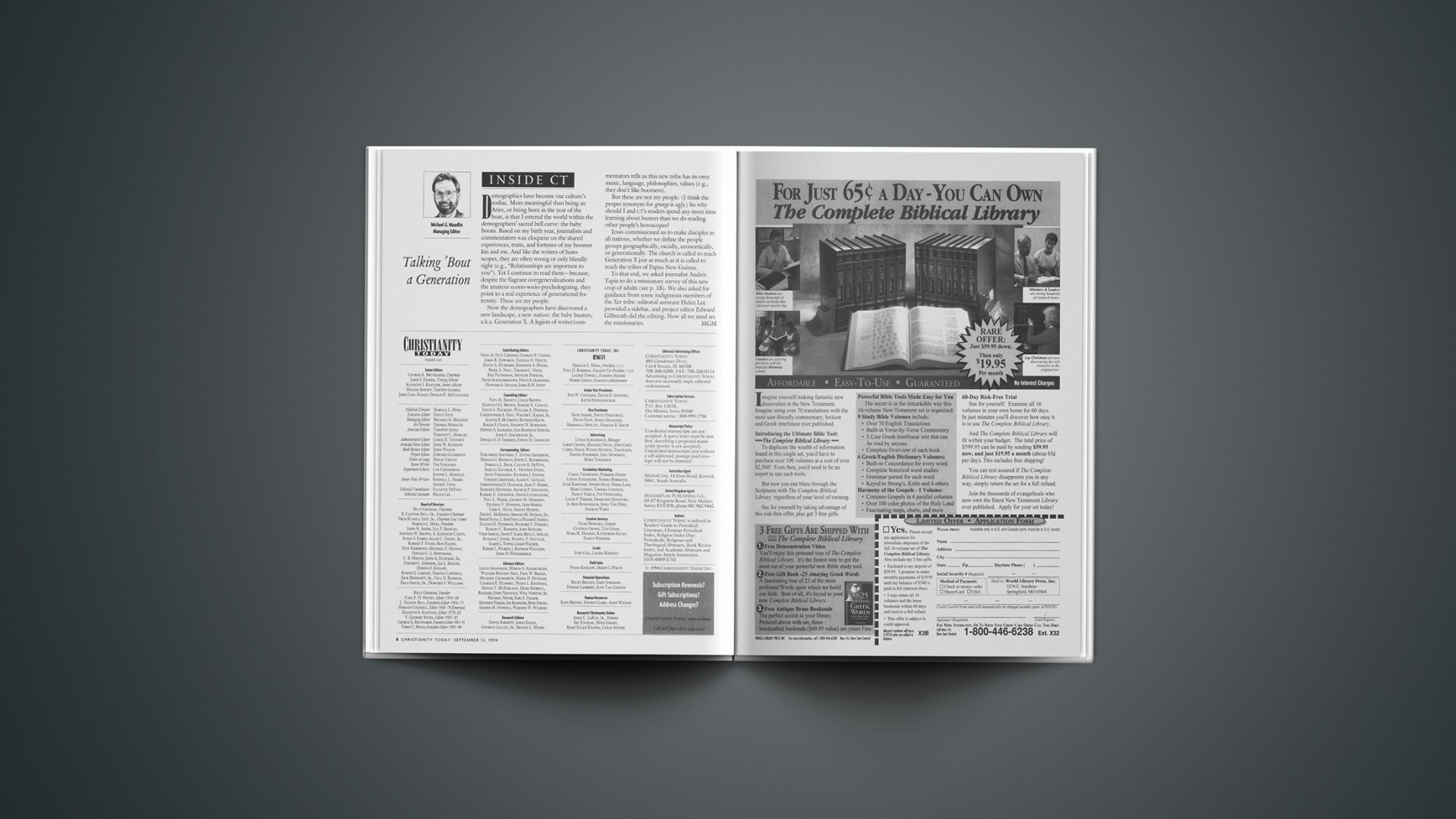Demographics have become our culture’s zodiac. More meaningful than being an Aries, or being born in the year of the boar, is that I entered the world within the demographers’ sacred bell curve: the baby boom. Based on my birth year, journalists and commentators wax eloquent on the shared experiences, traits, and fortunes of my boomer kin and me. And like the writers of horoscopes, they are often wrong or only blandly right (e.g. “Relationships are important to you”). Yet I continue to read them—because despite the flagrant overgeneralizations, and the amateur econo-socio-psychologizing, they point to a real experience of generational fraternity. These are my people.
Now the demographers have discovered a new landscape, a new nation: the baby busters, a.k.a. Generation X. A legion of writer/commentators tells us that this new tribe has its own music, language, philosophies, values (e.g., they don’t like the boomers).
But these are not my people. (I think the proper synonym for “grunge” is “ugly.”) So why should I and CT’s readers spend any more time learning about busters than we do reading other people’s horoscopes?
Jesus commissioned us to make disciples in all nations, whether we define the people groups geographically, racially, economically, or generationally. The church is called to reach Generation X just as much as it is called to reach the tribes of Papua New Guinea.
To that end, we asked journalist Andres Tapia to do a missionary survey of this new crop of adults. We also asked for guidance from some indigenous members of the Xer tribe: editorial assistant Helen Lee provided a sidebar, and project editor Edward Gilbreath did the editing. Now all we need are the missionaries.
Copyright © 1994 Christianity Today. Click for reprint information.










